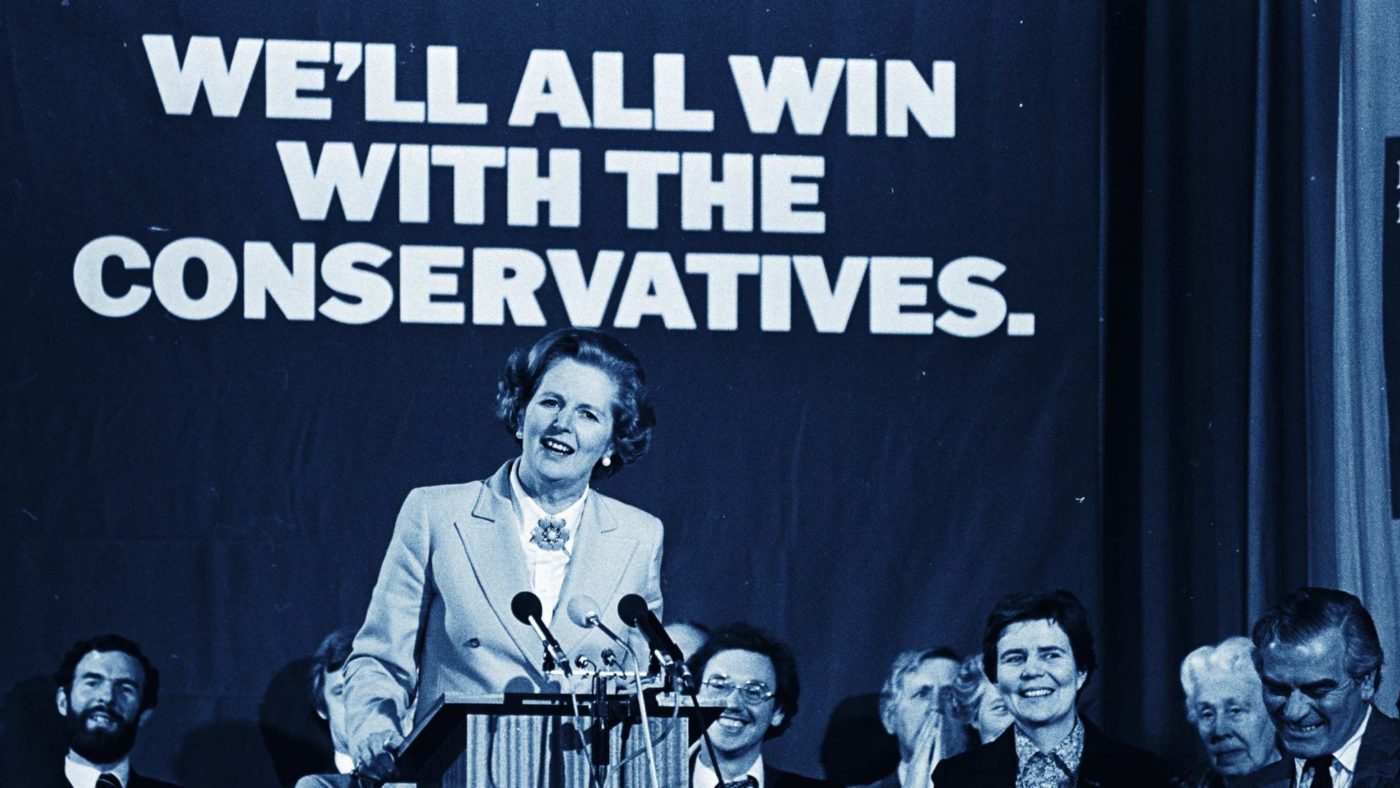Campaigning in the 1979 general election, then Prime Minister and Labour leader Jim Callaghan warned Britain of the risks of voting Conservative: “The question you will have to consider is whether we risk tearing everything up by the roots.” The Tories, he said, “were too big a gamble for the country to take”.
As we now know, the voters took a different view. Callaghan’s proto-Project Fear failed, Thatcher triumphed, Britain changed forever – and for the better.
Today marks 40 years since Margaret Thatcher first entered Downing Street as Prime Minister. All these years later the Conservative Party is frequently accused of having developed an unhealthy obsession with the Iron Lady.
But if Thatcher looms large, it is for good reason.
Some Tories might see their party as “the natural party of government”, but they haven’t been especially good at the prerequisite to governing: winning elections. Except, that is, when Thatcher was running things. She was responsible for three of the six majorities secured by Conservatives in the last 60 years. Her winning margins were 43, 144 and 102 seats. Edward Heath won a majority of 30 in 1970, John Major secured a 21-seat lead in 1992 and David Cameron snuck over the line by just 12 seats in 2015.
A YouGov poll this week confirmed Thatcher’s enduring appeal, with voters ranking her as Britain’s greatest post-war Prime Minister, pipping Churchill to the post (21 per cent to 19 per cent) and leaving Tony Blair and Clement Attlee a distant third and fourth on 6 and 5 per cent respectively.
No wonder so many are so keen to understand what it was that made her such an irresistible political proposition.
In his excellent piece for CapX yesterday, George Trefgarne attributed her success to her clarity of purpose when it came to what – and who – the Conservative party should stand for: “Everybody knew where her origins and sympathies lay: with the middle and lower-middle class.”
For all that Thatcherism is rightly recognised as an ideological revolution in British public life, it is important to remember its pragmatic roots. In her foreword to the 1979 Conservative manifesto, she wrote:
“This election may be the last chance we have to… restore the balance of power in favour of the people. It is therefore the most crucial election since the war… It contains no magic formula or lavish promises. It is not a recipe for an easy or a perfect life. But it sets out a broad framework for the recovery of our country, based not on dogma but on reason, on common sense, above all on the liberty of the people under the law.”
What lessons does this message hold for Conservatives today?
First it is a reminder that electoral success lies in the application of Conservative policies and ideas to the problems of the day, not in fighting yesterday’s battles. Securing popular capitalism in 1979 meant tackling inflation and facing down overmighty union leaders. Today I think it means solving the housing crisis and unlocking the productivity growth that will deliver higher wages and greater prosperity.
The second lesson is a more difficult one: Thatcher understood that a party seen to represent the status quo will not fare well in a time of widespread frustration and discontent. Who knows when Britons will next be asked to vote in a general election, but when they are there is a very real danger that the Conservatives make the same mistake as Labour in 1979: telling the country that the alternative is just too big a risk to take.
Falling into the same trap as Callaghan would be disastrous not just for the party but for the country. And would mean the start of a very different revolution to the one that saved Britain 40 years ago.
CapX depends on the generosity of its readers. If you value what we do, please consider making a donation.


